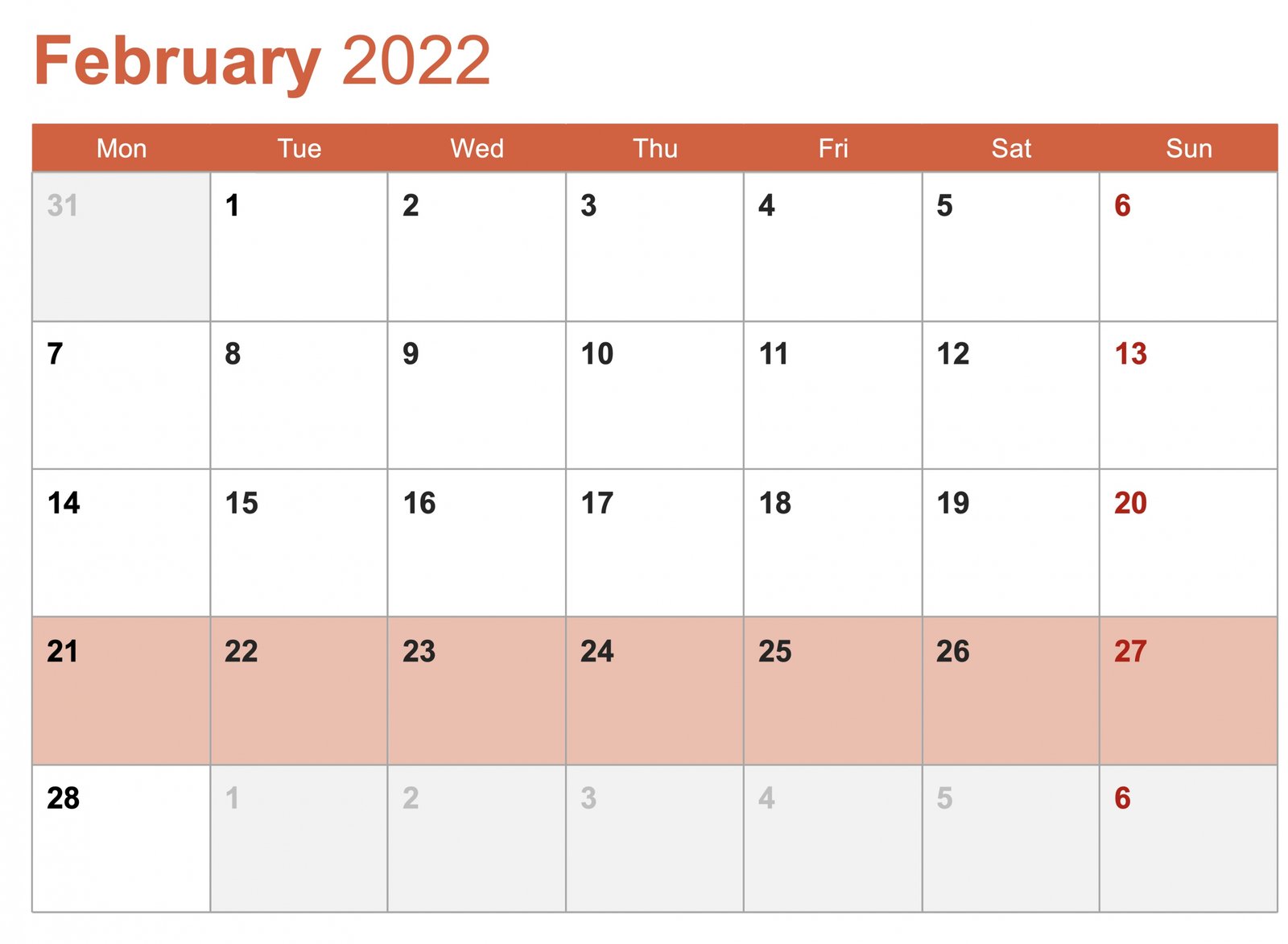7 days in healthcare (April, 1st-7th, 2024)

Summary
From the point of view of Biomedicine, the report published by the French National Academy of Medicine on generative AI systems in health is worth highlighting. It makes 10 recommendations, the first of which is that all health professionals should be trained in the use of generative AI. It seems that anti-obesity medications (initially, anti-diabetes) may be the closest thing to a universal panacea. There is already evidence that they can have benefits in many other diseases: heart, kidney, liver, brain (Alzheimer’s and Parkinson’s), as well as other organs.
With regard to Global Health, concern continues over the difficulties of advancing the Pandemic Treaty. The Treaty aims to prevent governments, institutions and populations from the errors of the covid-19 pandemic. In this sense, a more than interesting article by Mariana Mazzucato on aspects related to innovation, intellectual property (IP), public/private collaboration and financing. The Lancet speaks out in an editorial against the use of starvation (the total lack of food and mass famine) as a weapon of war, as we have seen in the war in Sudan and currently in Gaza, where Israeli action is taking on dimensions of destruction of Gaza, with the consequent health and humanitarian problems. Prostate cancer cases will double between 2020 and 2040.
Regarding International Health Policy, the French Prime Minister, Gabriel Attal, proposes a fine of five euros for those who miss scheduled medical appointments. But possibly the most far-reaching news is President Petro’s actions in healthcare in Colombia, with the intervention of the two largest EPS (Health Promotion Entities). This breaks the approach of the Colombian health system based since 1993 on Law 100, which established public/private collaboration through the EPS, companies that received public aid and were in charge of providing health services to their insured population. There is no doubt that the proliferation of populist governments in Latin America is a threat against any form of public/private collaboration in healthcare, as is also the case in Chile where ISAPRES (private insurers that receive public aid) are also threatened. The universalization of health coverage – something absolutely defensible and one of the great advances of our time, today in full expansion – leads some to interpret this as a monopoly of health care by the State and even a colonization of the management model by the traditional Administration, thus breaking a desirable freedom of choice, as well as a certain competition for the coexistence of different management models.
If we talk about National Health Policy (Spain), the Interterritorial Council of the National Health System unanimously supports the Comprehensive Plan for the Prevention and Control of Smoking. However, the Plan is fundamentally a roadmap and a declaration of intentions, some of which will have to be materialized through laws, with the uncertainty regarding the approval of new laws generated by the situation of the current legislature. The plan aims to increase smoke-free spaces (not specified); avoid promoting tobacco products; access to smoking cessation programs; equate electronic cigarettes with conventional tobacco; and, increase taxes on tobacco. The most controversial thing may be to equate electronic cigarettes with conventional tobacco, since the risks and damage to health are not comparable. A recent article in the New England Journal of Medicine states that there is sufficient evidence to show that switching from cigarettes to e-cigarettes reduces exposure to tobacco toxins, reduces respiratory symptoms and reverses physiological changes related to smoking cigarettes. The Government’s Regulatory Plan for 2024 announces four laws in the health field: 1. statute-framework; 2. law of guarantees; 3. alcohol consumption prevention law; and, 4. law on public management of health services. Same comment regarding the uncertainty regarding the approval of laws. Among these laws does not appear that of the State Public Health Agency, already being processed in Parliament. Of note is the meeting at the Ministry of Health of a representation of the same with representatives of doctors who work for health insurers. Regardless of the outcome of this meeting, it was not common until now for the Ministry of Health to enter into the problems of private healthcare. But welcome if there is a change in this regard.
As for Companies, internationally, drug shortages have recently reached unprecedented levels in several European countries and last year reached a ten-year high in the USA. Regarding national information, Grifols admits changes in its debt level and Recoletas is expanding to several regions through its reproductive business.
Biomedicine
- The French National Academy of Medicine publishes a report on generative AI systems in health. This Academy publishes 10 recommendations for the use of generative AI (SIAgen), the first of which is that all health professionals must be trained in the use of generative AI (https://www.hospitalia.fr/L-Academie-Nationale-de-medecine-publie-un-rapport-sur-les-systemes-d-IA-generative-en-sante_a4070.html). Access to the original document: https://www.academie-medecine.fr/wp-content/uploads/2024/03/Rapport-Systemes-dIA-generative-en-sante.pdf
- 10 things you can expect from AI in healthcare (https://medicalfuturist.com/10-things-you-can-definitely-expect-from-the-future-of-healthcare-ai/)
- 18 wearable devices on 18 body parts, which can measure EEG and sleep, temperature, glucose, vital signs, diabetes management, fall detection, etc. (https://medicalfuturist.com/the-wearable-health-tracker-landscape-18-devices-on-18-body-parts/)
- The PSA test for prostate cancer fails to detect some aggressive forms. On the one hand, this test has the problem of overdiagnosis, and, on the other hand, of missing very aggressive forms of prostate cancer (https://www.ft.com/content/b34a46b5-3986-4333-bec3-1fa516bb422d)
- The patient transplanted with the modified pig kidney discharged two weeks after the intervention, thus reinforcing the possibilities of xenotransplantation or transplants of animal organs to humans (https://www.nytimes.com/2024/04/03/health/pig-kidney-transplant-slayman.html)
- It seems that anti-obesity drugs can solve many other diseases. Although originally developed for diabetes, there is growing evidence that they may also have benefits in heart disease, kidney, liver, brain (Alzheimer’s and Parkinson’s) and other organs (https://www.economist.com/science-and-technology/2024/03/30/could-weight-loss-drugs-eat-the-world)
- Anti-diabetes medications offer a solution to patients with Parkinson’s (https://www.ft.com/content/f5da9cd1-b115-410a-93a6-24e6668e40f2)
Global Health
- Article from the Director General of the WHO: The next pandemic is coming, will we be prepared? In March, representatives from 194 countries will meet to try to agree on a treaty on “Disease X”, the cause of the next pandemic. The Treaty aims to prevent governments, institutions and populations from the errors of the covid-19 pandemic (https://www.ft.com/content/d40a3add-8151-4910-aabd-3f1dafabcc35)
- The Lancet Editorial: Starvation as a weapon of war must stop. One of the fundamental rights of human beings, such as access to medicines, is unattainable for around 700 million people. This has been used as a weapon of war, for example in Sudan and currently in Gaza (https://www.thelancet.com/journals/lancet/article/PIIS0140-6736(24)00684-6/fulltext#:~:text=The%20use%20of%20starvation%20as,right%20of%20all%3A%20human%20dignity.)
- Situation in the world regarding the legalization, decriminalization or prohibition of cannabis. Germany, along with Canada, California and Uruguay, is one of the few countries with legalized recreational use of cannabis; In many other countries there is the intermediate formula of decriminalization, where consumption is tolerated; In other countries it is simply prohibited. In many countries, therapeutic cannabis is legalized, which is in the process of approval in Spain (https://www.lemonde.fr/les-decodeurs/article/2024/04/02/legalisation-depenalisation-comment-les-legislations-du-cannabis-s-assouplissent-a-travers-le-monde_6225611_4355770.html#:~:text=Drogues-,Légalisation%2C%20dépénalisation%20%3A%20comment%20les%20légi)
- Prostate cancer cases will double between 2020 and 2040. On a global scale, these tumors will go from the 1.4 million diagnosed in 20209 to the 2.9 million expected in 2040 (https://www.diariomedico.com/medicine/oncology/2020-2040-duplicaran-casos-cancer-prostata-mundo.html). Access to the original article: https://www.thelancet.com/journals/lancet/article/PIIS0140-6736(24)00651-2/fulltext
- Anti-LGTBI laws in Africa harm health and research (https://www.thelancet.com/journals/lancet/article/PIIS0140-6736(24)00681-0/abstract)
- Alarm regarding the increase in kidney diseases. It is already the third fastest growing cause of death. It is expected that by 2040 it will be the fifth cause of loss of years of life. Already 850 million people are affected. The American government alone spends 130 billion dollars every year (https://www.nature.com/articles/d41586-024-00961-5#:~:text=03%20April%202024-,Time%20to%20sound%20the%20alarm%20about%20the%20hidden%20epidemic%20of,%2C%20treatment%2C%20funding%20and%20data.&text=A%20quiet%20epidemic%20is%20building,growing%20cause%20of%)
- An editorial in The Lancet comments on the step taken by France to declare abortion a constitutional right. Approved in the French Assembly by 780 votes to 72 on March 4, this occurs 50 years after the legalization of abortion in France by Simone Veil, and attempts to enshrine it as a constitutional right, in the face of steps against abortion in some countries such as Poland, USA and Hungary (https://www.thelancet.com/journals/lanpub/article/PIIS2468-2667(24)00052-5/fulltext)
- A trial tests against a rare disease for covid vaccine technology (https://elpais.com/ciencia/2024-04-03/un-ensayo-logra-tratar-una-enfermedad-rara-con-the-technology-of-covid-vaccines.html#)
- They identify new genetic variants related to obesity (https://www.elmundo.es/ciencia-y-salud/salud/2024/04/04/660d310421efa0ed728b45ad.html)
- Discovering a new cause of asthma can help cure it. The new research points towards cell death that occurs in the respiratory tract and not a disease of the immune system, as was believed until now (https://elpais.com/ciencia/2024-04-04/el-descubrimiento-de-a-new-cause-of-asthma-can-help-cure-it.html). Access to the original article: https://www.science.org/doi/10.1126/science.ado4514#:~:text=In%20turn%2C%20this%20crowding%20causes,with%20the%20subsequent%20release%20of
International health policy
- USA
- Elderly syphilis hits modern America (https://www.ft.com/content/857e70b8-7bfd-462b-8628-0663de7705ca)
- Movements to ban artificial meat intensify among red states (https://www.ft.com/content/afb4be5d-e363-4ef7-b509-2a4c909144ca
- United Kingdom and the National Health Service
- The drop in the rate of prenatal vaccinations due to whooping cough increases the number of cases of this disease in England (https://www.ft.com/content/365fbb34-3d24-4905-9d10-631112cc048a)
- Increases support for changing the law on assisted dying in the UK (https://www.ft.com/content/bd5db374-581e-497f-ad55-c19846b37908)
- NHS consultants reach pay deal, ending more than a year-long dispute (https://www.theguardian.com/society/2024/apr/05/nhs-consultants-accept-government-pay-offer-bma-end-strike-dispute)
- Waits in A&E lead to 14,000 deaths (https://www.theguardian.com/society/2024/apr/01/england-ae-wait-times-led-to-needless-deaths-of-up-to-14000-data-suggests#:~:text=The%20RCEM%20calculated%20that%20when,Covid%20cases%20overwhelmed%20the%20NHS.)
- France
- The French Prime Minister, Gabriel Attal, proposes a fine of five euros for those who miss medical appointments, which he intends to implement through a law (https://www.lemonde.fr/societe/article/2024/04/06/gabriel-attal-propose-une-sanction-de-5-euros-contre-les-patients-qui-n-honorent-pas-leurs-rendez-vous_6226381_3224.html#:~:text=Le%20gouvernement%20souhaite%20qu’à,de%20vingt%2Dquatre%20heures%20avant.)
- Maternal mortality: a woman dies every four days in France (https://www.lemonde.fr/societe/article/2024/04/03/mortalite-maternelle-une-femme-meurt-tous-les-quatre-jours-en-france_6225750_3224.html)
- Germany
- Germans celebrate the legalization of cannabis (https://www.radiotelecaraibes.com/en-images-les-allemands-fetent-la-legalisation-du-cannabis-a-usage-recreatif/)
- Colombia
- Petro intervenes in the EPS. After the resounding defeat he suffered last Wednesday in Congress, President Petro intends to advance health reform, intervening in the two largest EPS, altering the system that has been operating since 1993 with Law 100 and that implemented public/private collaboration in Colombia through some promoting companies that managed and administered health services in clinics and hospitals (https://elpais.com/america-colombia/2024-04-07/las-intervenciones-de-petro-a-las-eps-the-beginning-of-the-end-of-the-known-health-system.html)
- WHO
- The WHO launches Sarah, an avatar of intelligence on health issues (https://elpais.com/tecnologia/2024-04-02/la-oms-lanza-sarah-un-avatar-de-inteligencia-artificial-sobre-health-issues.html). Access to S.A.R.A.H.: https://www.who.int/campaigns/s-a-r-a-h
- The WHO launches CoViNet, the global network of laboratories to coordinate the monitoring of covid (https://diariofarma.com/2024/03/31/la-oms-lanza-covinet-la-red-mundial-de-laboratorios-to-coordinate-covid-monitoring#:~:text=The%20World%20Organization%20of%20the,importance%20for%20%20health%20public.)
- European Union
- EU pharmaceutical legislation drives investors to go to the USA, says an Irish investor (https://www.ft.com/content/0e08f880-6d17-4535-9892-990b22e1715d)
National health policy
- Central government initiatives
- The Interterritorial Council gives the green light to the Ministry’s anti-smoking plan, which is a roadmap with a lot of legislative work. The plan aims to increase smoke-free spaces (not specified), avoid the promotion of tobacco products, access to smoking cessation programs, equate electronic cigarettes with conventional tobacco and increase tobacco taxes (https://www.elmundo.es/ciencia-y-salud/salud/2024/04/05/66101c14e4d4d8e6678b45b7.html). Access to the Comprehensive Tobacco Prevention and Control Plan (PIT) 2024-2027: https://diariofarma.com/wp-content/uploads/2024/04/PIT_R5_05_2024.pdf
- The Tobacco Table accuses the Ministry of depriving smokers of using lower risk alternatives (https://www.larazon.es/sociedad/mesa-tabaco-acusa-sanidad-privar-fumadores-acceso-alternativas-menor-risk_20240406661100a117c56e00014d0f64.html)
- According to the Government’s 2024 Regulatory Plan, Health will promote four laws this year: 1. statute-framework; 2. law of guarantees; 3. alcohol consumption prevention law; and, 4. law on public management of health services (https://diariofarma.com/2024/04/03/sanidad-promovera-este-ano-cuatro-leyes-entre-ellas-el-blindaje-de-la-publichealthcare). Access to the 2024 Regulatory Plan (health, pages 116-121): https://transparencia.gob.es/transparencia/dam/jcr:00e03e20-a2c7-46cb-a482-00f487896469/PAN_2024.pdf
- Initiatives and news from the autonomous communities
- The Generalitat Valenciana will offer contracts to residents for one to three years (https://elpais.com/espana/comunidad-valenciana/2024-03-31/la-generalitat-valenciana-ofrecera-contratos-a-mir-de-one-to-three-years-from-2025-when-they-finish-their-training.html#)
- Hebron Valley Hospital (Catalonia)
- The Valle de Hebron hospital announces a cut of more than 200 temporary professionals (https://elpais.com/espana/catalunya/2024-04-03/vall-dhebron-comunica-a-su-plantilla-un-recorte-of-more-than-200-prospective-professionals-and-assume-the-waiting-list-will-grow.html)
- Professionals
- Nurses may prescribe calming, anesthetic or smoking cessation medications (https://www.abc.es/sociedad/enfermeras-podran-recetar-medicamentos-calmantes-anestesicos-dejar-20240404124145-nt.html)
- Private healthcare
- The Ministry of Health listens to the problems of private healthcare regarding “low cost” insurance and the low rates of doctors (https://www.epe.es/es/sanidad/20240403/medicos-autonomos-sanidad-problems-private-sector-policies-scales-dentists-psychologists-100538890)
Companies
- International News
- The unprecedented shortage of drugs. The broken drug market. Drug shortages have recently reached unprecedented levels in several European countries and last year reached a ten-year high in the USA (https://www.expansion.com/economia/financial-times/2024/04/06/66118bb2468aeb645a8b4586.html)
- The race to develop the next generation of anti-obesity drugs (https://www.ft.com/content/864631da-24d2-4d18-96b2-d2cb450edd5b)
- Johnson & Johnson buys device maker Shockwave for $13.1 billion (https://www.ft.com/content/29a3cda2-a233-479c-b73a-953c1762f847)
- Cannabis grower Curaleaf is considering entering the European stock market (London and Frankfurt) after legalization in Germany (https://www.ft.com/content/ecccabfc-132e-4058-ba9d-ccd22faf211e)
- ALS drug Relyvrio will be taken off the market (https://www.nytimes.com/2024/04/04/health/relyvrio-als-drug.html)
- The Latvian pharmaceutical company Grindeks opens new subsidiaries around the world (https://www.plantadoce.com/empresa/la-farmaceutica-letona-grindeks-abre-nuevas-filiales-en-todo-el-mundo#:~:text=The%20pharmaceutical%20Latvian%20Grindeks%20ha,like%20Canada%20and%20United States%20.)
- National
- Rovi obtains the US approval to sell Risvan as a treatment for schizophrenia (https://cincodias.elpais.com/companias/2024-04-02/rovi-recibe-la-aprobacion-en-ee-uu-para-market-a-drug-as-treatment-of-schizophrenia-in-adults.html#)
- Grifols admits that its debt in 2023 is 1,100 million compared to what it had declared (https://www.elperiodico.com/es/suplemento-trabajos/20240404/grifols-admite-ahora-deuda-2023-100637772)
- Atrys puts its purchasing strategy on hold (https://www.elconfidencial.com/empresas/2024-04-02/atrys-paraliza-estrategia-crecimiento-precio-accion_3858213/)
- Recoletas expands its reproductive business with clinics in Seville, Murcia and Zaragoza (https://www.plantadoce.com/empresa/recoletas-expande-su-negocio-reproductivo-con-clinicas-en-sevilla-murcia-y-zaragoza#:~:text=y%20Zaragoza%20%7C%20PlantaDoce-,Recoletas%20expands%20its%20business%20reproductive%20with%20clinics%20in%20Seville%2C%20Murcia,p)
- DKV focuses on children’s surgery and incorporates NixiKit to its insurance (https://www.plantadoce.com/empresa/dkv-se-vuelca-en-cirugia-infantil-incorpora-nixikit-a-sus-seguros#:~:text=The%20Spanish%20insurer%2C%20specialized%20in,tool%20within%20of%20its%20policies.)
- Miura transfers the dental company Proclinic to a secondary fund led by Federated Hermes (https://cincodias.elpais.com/companias/2024-04-05/miura-traspasa-la-compania-de-protesis-dentales-proclinic-to-a-secondary-fund-led-by-federated-homes.html)


